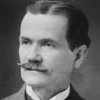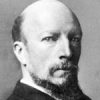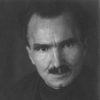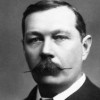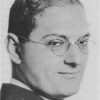Parents lend children their experience and a vicarious memory; children endow their parents with a vicarious immortality.
George Santayana (1863-1952) Spanish-American poet and philosopher [Jorge Agustín Nicolás Ruíz de Santayana y Borrás]
The Life of Reason, “Reason in Society,” ch. 2 “The Family” (1905-06)
(Source)
Quotations about:
memory
Note not all quotations have been tagged, so Search may find additional quotes on this topic.
Yes, it is the brightness, not the darkness, that we see when we look back. The sunshine casts no shadows on the past. The road that we have traversed stretches very fair behind us. We see not the sharp stones. We dwell but on the roses by the wayside, and the strong briers that stung us are, to our distant eyes, but gentle tendrils waving in the wind. God be thanked that it is so — that the ever-lengthening chain of memory has only pleasant links, and that the bitterness and sorrow of to-day are smiled at on the morrow.
Jerome K. Jerome (1859-1927) English writer, humorist [Jerome Klapka Jerome]
Idle Thoughts of an Idle Fellow, “On Memory” (1886)
(Source)
First published in Home Chimes (1885-09-26).
BALTHASAR: For slander lives upon succession,
Forever housèd where it gets possession.William Shakespeare (1564-1616) English dramatist and poet
Comedy of Errors, Act 3, sc. 1, l. 154ff (3.1.154-155) (1594)
(Source)
To Antipholus of Ephesus.
Life altogether is but a crumbling ruin when we turn to look behind: a shattered column here, where a massive portal stood; the broken shaft of a window to mark my lady’s bower; and a moldering heap of blackened stones where the glowing flames once leaped, and over all the tinted lichen and the ivy clinging green.
Jerome K. Jerome (1859-1927) English writer, humorist [Jerome Klapka Jerome]
Idle Thoughts of an Idle Fellow, “On Memory” (1886)
(Source)
First published in Home Chimes (1885-09-26).
Your memory is a monster; you forget — it doesn’t. It simply files things away. It keeps things for you, or hides things from you — and summons them to your recall with a will of its own. You think you have a memory; but it has you!
John Irving (b. 1942) American-Canadian novelist and screenwriter [b. John Wallace Blunt Jr.]
A Prayer for Owen Meany, ch. 1 “The Foul Ball” (1989)
(Source)
That is just the way with Memory; nothing that she brings to us is complete. She is a willful child; all her toys are broken. I remember tumbling into a huge dust-hole when a very small boy, but I have not the faintest recollection of ever getting out again; and if memory were all we had to trust to, I should be compelled to believe I was there still.
Jerome K. Jerome (1859-1927) English writer, humorist [Jerome Klapka Jerome]
Idle Thoughts of an Idle Fellow, “On Memory” (1886)
(Source)
First published in Home Chimes (1885-09-26).
And in truth, of course, I’m not just 60 — I’m twelve, I’m 23, I’m 37, I’m 42, I’m 18. I’m every age I’ve ever been. Depending on what day of the week it is and what the situation calls for at the moment.
[Und in Wahrheit bin ich natürlich nicht nur 60 – ich bin zwölf, ich bin 23, ich bin 37, ich bin 42, ich bin 18. Ich habe jedes Alter, das ich je gehabt habe. Je nachdem, welcher Wochentag ist und was die Situation gerade erfordert.]
William Martin "Billy" Joel (b. 1949) American singer, songwriter, pianist
“Ohne die Nazis hätte es Billy Joel nie gegeben,” Die Welt (2009-05-10)
This interview is published in German, but in it Joel comments he only knows a bit of the language (his father was a Jewish refugee from Germany before WW2), so it was likely conducted in English. The German version is from the article. The English version is from Wikiquote (source unknown), which titles the article "Without the Nazis, there wouldn't have been Billy Joel."
Within that heav’n which most receives His light
Was I, and saw such things as man nor knows
Nor skills to tell, returning from that height;
For when our intellect is drawing close
To its desire, its paths are so profound
That memory cannot follow where it goes.
Yet now, of that blest realm, whate’er is found
Here in my mind still treasured and possessed
Must set the strain for all my song to sound.
[Nel ciel che più de la sua luce prende
fu’ io, e vidi cose che ridire
né sa né può chi di là sù discende;
perché appressando sé al suo disire,
nostro intelletto si profonda tanto,
che dietro la memoria non può ire.
Veramente quant’io del regno santo
ne la mia mente potei far tesoro,
sarà ora materia del mio canto.]Dante Alighieri (1265-1321) Italian poet
The Divine Comedy [Divina Commedia], Book 3 “Paradiso,” Canto 1, l. 4ff (1.4-12) (1320) [tr. Sayers/Reynolds (1962)]
(Source)
Dante breaks the fourth wall again, to apologize for how little he can remember of the ineffable glories of Heaven (which works out to an entire book's worth).
(Source (Italian)). Alternate translations:
In daring drains
I sing, admitted to the lofty fanes,
Fill'd with the Glory of th' Eternal One.
There saw I things beyond Creation's bourne.
Which none who from her flaming bounds return
Can tell, when soaring Thought is launch'd so far
In Being's vast Abyss, that Mem'ry fails.
Nor dares pursue, altho' with crowded sails
She tries the Voyage o'er th' eternal Bar.
But some small remnant of that heav'nly Spoil,
From that strange Voyage won with arduous toil,
To her dear native soil, the Muse shall bear.
[tr. Boyd (1802), st. 1-3]
In heav’n,
That largeliest of his light partakes, was I,
Witness of things, which to relate again
Surpasseth power of him who comes from thence;
For that, so near approaching its desire
Our intellect is to such depth absorb’d,
That memory cannot follow. Nathless all,
That in my thoughts I of that sacred realm
Could store, shall now be matter of my song.
[tr. Cary (1814)]
In heaven, that drinks the deepest of the light,
Was I, and saw what to recount to sense
He knows not how, nor can, who comes from thence;
Because, approaching nearer its desire,
Dives intellect to such a depth profound
That memory fails, and cannot go beyond
In truth of that dominion's power, whate'er
I can find room to treasure in my mind,
Be now the subject in my song enshrined.
[tr. Bannerman (1850)]
Within that heaven which most his light receives
Was I, and things beheld which to repeat
Nor knows, nor can, who from above descends;
Because in drawing near to its desire
Our intellect ingulphs itself so far,
That after it the memory cannot go.
Truly whatever of the holy realm
I had the power to treasure in my mind
Shall now become the subject of my song.
[tr. Longfellow (1867)]
In the heaven which receives most of His light was I, and I beheld things which whoso descends thence has neither knowledge nor power to tell again, seeing that as it draws near to its desire our understanding plunges so deep, that the memory cannot go after it. Howbeit, so much of the holy realm as I could treasure up within my mind shall now be matter for my lay.
[tr. Butler (1885)]
In the sky which most partaketh of his light
Was I, and things I saw, which to repeat
Knows not, and cannot whoe'er leaves that height.
Because approaching to its yearned-for seat
The intellect deep diveth there so long
That memory behind it cannot fleet.
Of what to the holy kingdom doth belong
Which I had power to treasure in my mind,
Truly shall now be subject of my song.
[tr. Minchin (1885)]
In the heaven that receives most of its light I have been, and have seen things which he who descends from thereabove neither knows how nor is able to recount; because, drawing near to its own desire, our understanding enters so deep, that the memory cannot follow. Truly whatever of the Holy Realm I could treasure up in my mind shall now be the theme of my song.
[tr. Norton (1892)]
In that heaven which most receiveth of his light, have I been ; and have seen things which whoso descendeth from up there hath nor knowledge nor power to re-tell;
because, as it draweth nigh to its desire, our intellect sinketh so deep, that memory cannot go back upon the track.
Nathless, whatever of the holy realm I had the power to treasure in my memory, shall now be matter of my song.
[tr. Wicksteed (1899)]
I was in the heaven that most receives His light and I saw things which he that descends from it has not the knowledge or the power to tell again; for our intellect, drawing near to its desire, sinks so deep that memory cannot follow it. Nevertheless, so much of the holy kingdom as I was able to treasure in my mind shall now be matter of my song.
[tr. Sinclair (1939)]
In that heaven which partakes most of His light
I have been, and have beheld such things as who
Comes down thence has no wit nor power to write;
Such depth our understanding deepens to
When it draws near unto its longing's home
That memory cannot backward with it go.
Nevertheless what of the blest kingdom
Could in my memory, for its treasure, stray
Shall now the matter of my song become.
[tr. Binyon (1943)]
I have been in that Heaven of His most light,
and what I saw, those who descend from there
lack both the knowledge and the power to write.
For as our intellect draws near its goal
it opens to such depths of understanding
as memory cannot plumb within the soul.
Nevertheless, whatever portion time
still leaves me of the treasure of that kingdom
shall now become the subject of my rhyme.
[tr. Ciardi (1970)]
I have been in the heaven that most receives of his light, and have seen things which whoso descends from up there has niehter the knowledge nor the power to relate, because, as draws near to its desire, our intellect enters so deep that memory cannot go back upon the track. Nevertheless, so much of the holy kingdom as I could treasure up in my mind shall now be the matter of my song.
[tr. Singleton (1975)]
I have been in the heaven which takes most of his light,
And I have seen things which cannot be told,
Possibly, by anyone who comes down from up there;
Because, approaching the object of its desires,
Our intellect is so deeply absorbed
That memory cannot follow it all the way.
Nevertheless, what I was able to store up
Of that holy kingdom, in my mind,
Will now be the matter of my poem.
[tr. Sisson (1981)]
I was within the heaven that receives more
of His light; and I saw things that he
who from that height descends, forgets or can
not speak; for nearing its desired end,
our intellect sinks into an abyss
so deep that memory fails to follow it.
Nevertheless, as much as I, within
my mind, could treasure of the holy kingdom
shall now become the matter of my song.
[tr. Mandelbaum (1984)]
I have been in His brightest shining heaven
and seen such things that no man, once returned
from there, has wit or skill to tell about;
for when our intellect draws near its goal
and fathoms to the depths of its desire,
the memory is powerless to follow;
but still, as much of Heaven’s holy realm
as I could store and treasure in my mind
shall now become the subject of my song.
[tr. Musa (1984)]
In the heaven that receives most of his light have I been, and I have seen things that one who comes down from there cannot remember and cannot utter,
for as it draws near to its desire, our intellect goes so deep that the memory cannot follow it.
Nevertheless, as much of the holy kingdom as I was able to treasure up in my mind will now become the matter of my song.
[tr. Durling (2011)]
I have been in that Heaven that knows his light most, and have seen things, which whoever descends from there has neither power, nor knowledge, to relate: because as our intellect draws near to its desire, it reaches such depths that memory cannot go back along the track.
Nevertheless, whatever, of the sacred regions, I had power to treasure in my mind, will now be the subject of my labour.
[tr. Kline (2002)]
High in that sphere which takes from Him most light
I was -- I was! -- and saw things there that no one
who descends knows how or ever can repeat.
For, drawing near to what it most desires,
our intellect so sinks into the deep
no memory can follow it that far.
As much, though, truly of that holy realm
as I could keep as treasure in my mind
will now become the substance of my song.
[tr. Kirkpatrick (2007)]
I was in that heaven which receives
more of His light. He who comes down from there
can neither know nor tell what he has seen,
for, drawing near to its desire,
so deeply is our intellect immersed
that memory cannot follow after it.
Nevertheless, as much of the holy kingdom
as I could store as treasure in my mind
shall now become the subject of my song.
[tr. Hollander/Hollander (2007)]
And though I saw where most of His brightness falls,
What I have seen cannot be represented
Here, for those who have entered Heaven, and descended,
Have come so close to what our minds desire
They sink far in, and bury their knowledge, their power,
So deep that memory cannot recover
A thing. But I will try, truly, to present
Whatever remains in my mind of that holy kingdom
And make it the substance of this song I will sing.
[tr. Raffel (2010)]
I was in the heaven that gets more of its rays
And saw things that those who come down
From on high can’t grasp or else can’t say,
Because nearing what one wants,
Our intellect is so overcome
That our memory is left behind.
Even so, as much of the Holy Kingdom
As my mind could hold on to
Will now be the subject of my song.
[tr. Bang (2021)]
I am old now, or at least, I am no longer young, and everything I see reminds me of something else I’ve seen, such that I see nothing for the first time. A bonny girl, her hair fiery red, reminds me only of another hundred such lasses, and their mothers, and what they were as they grew, and what they looked like when they died. It is the curse of age, that all things are reflections of other things.
Neil Gaiman (b. 1960) British author, screenwriter, fabulist
“The Truth Is a Cave in the Black Mountains …”, Trigger Warning (2015)
(Source)
You are always new. The last of your kisses was ever the sweetest; the last smile the brightest; the last movement the gracefullest.
I want to visit Memory Lane, I don’t want to live there.
Letty Cottin Pogrebin (b. 1939) American author, journalist, lecturer, social activist
Deborah, Golda, and Me, ch. 1 (1991)
(Source)
Perhaps being old is having lighted rooms
Inside your head, and having people in them, acting.
People you know, yet can’t quite name.Philip Larkin (1922-1985) English poet, novelist, librarian
“The Old Fools,” High Windows (1974)
(Source)
Strephon kissed me in the spring,
Robin in the fall,
But Colin only looked at me
And never kissed at all.Strephon’s kiss was lost in jest,
Robin’s lost in play,
But the kiss in Colin’s eyes
Haunts me night and day.
Just as eating contrary to the inclination is injurious to the health, study without desire spoils the memory, and it retains nothing that it takes in.
Leonardo da Vinci (1452-1519) Italian artist, engineer, scientist, polymath
MS. 2038, Bib. Nat. 34 r. [tr. McCurdy (1908)]
(Source)
Why is it that we remember with effort but forget without effort? That we learn with effort but stay ignorant without effort? That we are active with effort, and lazy without effort?
[Quid est enim, quod cum labore meminimus, sine labore obliuiscimur; cum labore discimus, sine labore nescimus; cum labore strenui, sine labore inertes sumus?]Augustine of Hippo (354-430) Christian church father, philosopher, saint [b. Aurelius Augustinus]
City of God [De Civitate Dei], Book 22, ch. 22 (22.22) (AD 412-416) [tr. Green (Loeb) (1972)]
(Source)
(Source (Latin)). Alternate translations:
What is our labour to remember things, our labour to learn, and our ignorance without this labour? our agility got by toil, and our dullness if we neglect it?
[tr. Healey (1610)]
For why is it that we remember with difficulty, and without difficulty forget? learn with difficulty, and without difficulty remain ignorant? are diligent with difficulty, and without difficulty are indolent?
[tr. Dods (1871)]
How difficult it is to remember, how easy to forget; how hard to learn and how easy to be ignorant; how difficult to make an effort and how easy to be lazy.
[tr. Walsh/Honan (1954)]
How is it that what we learn with toil we forget with ease? that it is hard to learn, but easy to be in ignorance? That activity goes against the grain, while indolence is second nature?
[tr. Bettenson (1972)]
Why is it that we remember with such difficulty, but forget so easily? Why is it that we learn with such difficulty, yet so easily remain ignorant? Why is it that we are vigorous with such difficulty, yet so easily inert?
[tr. Dyson (1998)]
We hear only half of what is said to us, understand only half of that, believe only half of that, and remember only half of that.
Mignon McLaughlin (1913-1983) American journalist and author
The Neurotic’s Notebook, ch. 5 (1963)
(Source)
Childhood is a thing that happens so early you don’t forget it. Everything else you grow out of, but you never recover from childhood.
Beryl Bainbridge (1932-2010) English novelist
“Beryl Bainbridge and Her Tenth Novel,” interview by Willa Petschek, New York Times (1981-03-01)
(Source)
So, like a forgotten fire, a childhood can always flare up again within us.
Gaston Bachelard (1884-1962) French philosopher.
The Poetics of Reverie, ch. 3 “Reveries Toward Childhood,” sec. 2 (1969)
(Source)
So gleams the past, the light of other days,
Which shines, but warms not with its powerless rays.George Gordon, Lord Byron (1788-1824) English poet
“Sun of the Sleepless!” Hebrew Melodies (1815)
(Source)
Today a man is here; tomorrow he is gone. And when he is out of sight, he is soon out of mind.
[Hodie homo est, et cras non comparet. Cum autem sublatus fuerit ab oculis, etiam cito transit a mente.]
Thomas à Kempis (c. 1380-1471) German-Dutch priest, author
The Imitation of Christ [De Imitatione Christi], Book 1, ch. 23, v. 1 (1.23.1) (c. 1418-27) [tr. Sherley-Price (1952)]
(Source)
(Source (Latin)). Alternate translations:
For the common proverb is true: To-day a man , to-morrow none. And when thou art taken out of sight, thou art anon out of mind, and soon shalt thou be forgotten.
[tr. Whitford/Raynal (1530/1871)]
For the common proverb is true: Today a man; tomorrow none. When you are out of sight you are soon out of mind, and soon will be forgotten.
[tr. Whitford/Gardiner (1530/1955)]
To day a man, tomorrow none, and out of sight, out of mind.
[tr. Page (1639)]
To Day the Man is vigorous, and gay, and flourishing, and to Morrow he is cut down, withered and gone. A very little time carries him out of our Sight, and a very little more out of our Remembrance.
[tr. Stanhope (1696; 1706 ed.)]
To-day man is, and to-morrow he is not seen; And when he is once removed from the fight of others, he soon passeth from their remembrance.
[tr. Payne (1803)]
To-day the man is here; to-morrow he hath disappeared. And when he is out of sight, quickly also is he out of mind.
[ed. Parker (1841)]
Man is here to-day, and gone to-morrow: and when once removed from sight, soon perishes from remembrance.
[tr. Dibdin (1851)]
A man is here to-day, and to-morrow he is no longer seen. And when he is taken away from the sight, he is also quickly out of mind.
[ed. Bagster (1860)]
To-day man is, and to-morrow he will be seen no more. And being removed out of sight, quickly also he is out of mind.
[tr. Benham (1874)]
To-day we are here, to-morrow we disappear, and when we are gone, quickly also we are out of mind.
[tr. Anon. (1901)]
Today we live; tomorrow we die and are quickly forgotten.
[tr. Croft/Bolton (1940)]
Today man is; and tomorrow he has vanished. But when he is taken out of sight he also soon passes out of mind.
[tr. Daplyn (1952)]
Here man is today; tomorrow, he is lost to view; and once a man is out of sight, it's not long before he passes out of mind.
[tr. Knox-Oakley (1959)]
A man is here today and gone tomorrow, and once he is out of our sight it is not long before he is out of our minds as well.
[tr. Knott (1962)]
Today a man is and tomorrow he is gone. When he has been removed from our sight he is soon out of mind as well.
[tr. Rooney (1979)]
Today we are, and tomorrow we are gone. And when we are taken out of sight, we soon pass out of mind.
[tr. Creasy (1989)]
Those were great old days, (but darn it any old days are great old days. Even the tough ones, after they are over, you can look back with great memories.)
“Is it true that your life passes before your eyes before you die?”
YES.
“Ghastly thought, really.” Rincewind shuddered. “Oh, gods, I’ve just had another one. Suppose I am about to die and this is my whole life passing in front of my eyes?”
I THINK PERHAPS YOU DO NOT UNDERSTAND. PEOPLE’S WHOLE LIVES DO PASS IN FRONT OF THEIR EYES BEFORE THEY DIE. THE PROCESS IS CALLED “LIVING.”Terry Pratchett (1948-2015) English author
The Last Continent [Death and Rincewind] (1999)
(Source)
Variants and paraphrases:
It is often said that before you die your life passes before your eyes. It is in fact true. It's called living.
It is said that your life flashes before your eyes just before you die. That is true, it’s called Life.
Try as we will, we cannot honestly recall our youth, for we have lost the feel of its main ingredient: suspense.
Mignon McLaughlin (1913-1983) American journalist and author
The Neurotic’s Notebook, ch. 3 (1963)
(Source)
Princes like to be helped, but not surpassed. When you counsel someone, you should appear to be reminding him of something he had forgotten, not of the light he was unable to see.
[Gustan de ser ayudados los príncipes, pero no excedidos, y que el aviso haga antes viso de recuerdo de lo que olvidaba que de luz de lo que no alcanzó.]
Baltasar Gracián y Morales (1601-1658) Spanish Jesuit priest, writer, philosopher
The Art of Worldly Wisdom [Oráculo Manual y Arte de Prudencia], § 7 (1647) [tr. Maurer (1992)]
(Source)
(Source (Spanish)). Alternate translations:
Princes are willing to be assisted, but not surpassed. Those who advise them ought to speak as if they put them in mind of what they forgot, and not as teaching them what they knew not.
[Flesher ed. (1685)]
They [princes] will allow a man to help them but not to surpass them, and will have any advice tendered them appear like a recollection of something they have forgotten rather than as a guide to something they cannot find.
[tr. Jacobs (1892)]
They [kings] may abide being helped, but not surpassed, wherefore let advice given them appear more a jog to what they forgot, than a light to what they could not find.
[tr. Fischer (1937)]
I don’t think about whether people will remember me or not. I’ve been an okay person. I’ve learned a lot. I’ve taught people a thing or two. That’s what’s important. Sooner or later the public will forget you, the memory of you will fade. What’s important are the individuals you’ve influenced along the way.
We hear only half of what is said to us, understand only half of that, believe only half of that, and remember only half of that.
Mignon McLaughlin (1913-1983) American journalist and author
The Neurotic’s Notebook, ch. 5 (1963)
(Source)
Memory is a crazy woman that hoards colored rags and throws away food.
Austin O'Malley (1858-1932) American ophthalmologist, professor of literature, aphorist
Keystones of Thought (1914)
(Source)
Let us learn from the lips of death the lessons of life. Let us live truly while we live, live for what is true and good and lasting. And let the memory of our dead help us to do this. For they are not wholly separated from us, if we remain loyal to them. In spirit they are with us. And we may think of them as silent, invisible, but real presences in our households.
Felix Adler (1851-1933) German-American educator
Life and Destiny, Lecture 8 “Suffering and Consolation” (1903)
(Source)
The fact I asked you last night
To come round this evening and dine,
Procillus, would seem to be due
To that fifth or sixth bottle of wine.
To think it entirely arranged
And take notes on the nonsense you hear
Is a hazardous way to behave —
D–n a drinker whose memory’s clear![Hesterna tibi nocte dixeramus,
Quincunces puto post decem peractos,
Cenares hodie, Procille, mecum.
Tu factam tibi rem statim putasti
Et non sobria verba subnotasti
Exemplo nimium periculoso:
Μισῶ μνάμονα συμπόταν, Procille.]Martial (AD c.39-c.103) Spanish Roman poet, satirist, epigrammatist [Marcus Valerius Martialis]
Epigrams [Epigrammata], Book 1, epigram 27 (1.27) (AD 85-86) [tr. Nixon (1911), “A Alleybi’s the Thing”]
(Source)
"To Procillus." The Greek phrase, attested to elsewhere in Classical literature, reads, as variously translated here, "I dislike a drinking companion who remembers."
(Source (Latin)). Alternate translations:
I had this day carroust the thirteenth cup,
And was both slipper-tong'd, and idle-brain'd,
And said by chance, that you with me should sup.
You thought hereby, a supper cleerely gain'd:
And in your Tables you did quote it up.
Uncivill ghest, that hath been so ill train'd!
Worthy thou are hence supperlesse to walke,
That tak'st advantage of our Table-talke.
[tr. Harington (fl. c. 1600)]
To sup with me, to thee I did propound,
But 'twas when our full cups had oft gone round.
The thing thou straight concludest to be done,
Merry and sober words counting all one.
Th' example's dangerous at the highest rate;
A memorative drunkard all men hate.
[tr. Killigrew (1695)]
Yesternight, it seems, I swore,
Fifty bumpers hardly o'er,
You should sup tonight with me;
Instant you devour'd the glee;
And would bind the words of drink:
Dang'rous precedent, I think.
Wofull partner of the bowl,
Proves a reminiscent soul.
[tr. Elphinston (1782), Book 7, ep. 17]
Last night I had invited you -- after some fifty glasses, I suppose, had been despatched -- to sup with me today. You immediately thought your fortune was made, and took note of my unsober words, with a precedent but too dangerous. I hate a boon companion whose memory is good, Procillus.
[tr. Bohn's Classical (1859)]
Last night I said to you (I think it was after I had got through ten half-pints): "Dine with me today, Procillus." You at once thought the matter settled for you, and took secret note of my unsober remark -- a precedent too dangerous! "I hate a messmate with a memory," Procillus.
[tr. Ker (1919)]
I may have asked you here to dine,
But that was late at night,
And none of us had spared the wine
If I remember right.
You thought the invitation meant,
Though wine obscured my wit!
And -- O most parous precedent --
You made a note of it!
The maxim that in Greece was true
Is true in Rome today --
"I hate a fellow-toper who
Remembers what I say."
[tr. Pott & Wright (1921), "'Tis Wise to Forget"]
After ten cups were put away
I said, "Procillus," yesterday,
"You'll dine with me, my friend, you're wanted."
You promptly took the thing for granted
And made a note without formality
Of my incautious hospitality;
A dangerous precedent to set;
I hate a guest who won't forget.
[tr. Francis & Tatum (1924), #16]
Last night I said, while feeling fine,
Having drunk much too much wine,
That you must promise, when this way,
To stop and dine with me some day.
You made a mental note of it,
A practice which, I must admit --
Taking me at my drunken word! --
Is dangerous and quite absurds.
Barroom promises are fine,
But he who keeps them is a swine!
[tr. Marcellino (1968)]
Last night in my cups,
or my brandy tumbler, at least,
I asked you for dinner today.
But you took me seriously, Procillus,
and noted down carefully the words I spouted
under the influence. A dangerous business.
I don't like to drink with people who remember.
[tr. Bovie (1970)]
Last night, after five pints of wine,
I said, "Procillus, come and dine
Tomorrow." You assumed I meant
What I said (a dangerous precedent)
And slyly jotted down a note
Of my drunk offer. Let me quote
A proverb from the Greek: "I hate
An unforgetful drinking mate."
[tr. Michie (1972)]
Last night when I was carried off with wine
I made you promise to drop by and dine
With me today. Only a fool or a turd
Expects a drunken man to keep his word.
[tr. O'Connell (1991), "Bummer"]
Last night after getting through four pints or so I asked you to dine with me this evening, Procillus. You thought you had the matter settled then and there, and made a mental note of my tipsy words -- a very dangerous precedent. I don't like a boozing partner with a memory, Procillus.
[tr. Shackleton Bailey (1993)]
When drinks I had beyond my number,
I thought I would myself encumber
With a pledge to give you lunch today.
You wrote it down with great display
As if to register disputed votes.
I hate a tippler taking notes.
[tr. Wills (2007)]
Last night, Procillus, after I had drunk
four pints or so, I asked if you would dine
with me today. At once, you thought the matter
was settled, based on statements blurred by wine --
a risky precedent. Good memory
is odious in one who drinks with me.
[tr. McLean (2014)]
Last night I invited you,
after we killed, what, fifty-something cups,
to come and eat some food with me today.
Right then and there you thought the thing was done
and took me at my not-so-sober word.
A very risky thing to do: I hate
a drinking bud whose memory is good.
[tr. Goldman (2022)]
Life brings no greater grief
Than happiness remembered in a time
Of sorrow.[Nessun maggior dolore
Che ricordarsi del tempo felice
Ne la miseria.]Dante Alighieri (1265-1321) Italian poet
The Divine Comedy [Divina Commedia], Book 1 “Inferno,” Canto 5, l. 121ff (5.121-123) [Francesca] (1309) [tr. James (2013), l. 141ff]
(Source)
Francesca de Rimini is responding to Dante's request to speak of her love affair while in the middle of being punished for it. It is a true (if slanted) tale that occurred when Dante was a young man. Francesca da Polenta wed the crippled Giovanni Malatesta de Rimini, but fell in adulterous love with his brother, Paolo. Upon discovery of their affair, Giovanni killed them both. This was a local scandal, and would have been lost to time if Dante had not recorded it here. He relegates the lovers to the "least" eternal punishment in Hell, in the circle of carnal sins -- while Giovanni (who was still alive when this was written) is doomed to a lower circle for the murder (treachery to kindred). (More info.)
Inspiration for this particular phrase has been credited to many sources: Wisdom 11:11-12, Boethius (Consolation of Philosophy, 2.4.3-6), and Pindar (Pythian 4.510-512) are the most common. Augustine (Confessions 10.14) and Thomas Aquinas have also been cited.
(Source (Italian)). Alternate translations:
No greater grief assails us [...]
Than in unhappy hours to recollect
A better time.
[tr. Rogers (1782)]
Oh! how grievous to relate
Past joys, and tread again the paths of fate.
[tr. Boyd (1802), st. 23]
No greater grief than to remember days
Of joy, when mis'ry is at hand!
[tr. Cary (1814)]
No keener pang hath hell.
Than to recall, amid some deep distress,
Our happier time.
[tr. Dayman (1843)]
There is no greater pain than to recall a happy time in wretchedness.
[tr. Carlyle (1849)]
There is no greater grief
Than to remember happiness in woe.
[tr. Bannerman (1850)]
No greater grief than this,
Mem'ry to hold of the past happy time
In misery.
[tr. Johnston (1867)]
There is no greater sorrow
Than to be mindful of the happy time
In misery.
[tr. Longfellow (1867)]
No greater woe is there than to call to mind the happy time in your misery.
[tr. Butler (1885)]
There is no greater grief
Than to remember us of happy time
In misery.
[tr. Minchin (1885)]
There is no greater woe than in misery to remember the happy time.
[tr. Norton (1892)]
No deeper sorrow is, than to recall a time of happiness, in misery's hour.
[tr. Sullivan (1893)]
There is no greater sorrow
Than to recall to memory times of gladness
In misery.
[tr. Griffith (1908)]
There is no greater pain than to recall the happy time in misery.
[tr. Sinclair (1939)]
No grief surpasses this [...]
In the midst of misery to remember bliss.
[tr. Binyon (1943)]
The bitterest woe of woes
Is to remember in our wretchedness
Old happy times.
[tr. Sayers (1949)]
The double grief of a lost bliss
is to recall its happy hour in pain.
[tr. Ciardi (1954), ll. 118-19]
There is no greater sorrow than to recall, in wretchedness, the happy time.
[tr. Singleton (1970)]
There is no greater pain
than to remember, in our present grief,
past happiness!
[tr. Musa (1971)]
There is no greater sorrow
than thinking back upon a happy time
in misery.
[tr. Mandelbaum (1980)]
There is no greater sorrow
Than to think backwards to a happy time,
When one is miserable.
[tr. Sisson (1981)]
No sadness
Is greater than in misery to rehearse
Memories of joy.
[tr. Pinsky (1994), l. 107ff]
There is no greater pain than to remember the happy time in wretchedness.
[tr. Durling (1996)]
There is no greater pain, than to remember happy times in misery.
[tr. Kline (2002)]
There is no greater pain, I fear,
than to recall past joy in present hell.
[tr. Carson (2002)]
There is no sorrow greater
than, in times of misery, to hold at heart
the memory of happiness.
[tr. Kirkpatrick (2006)]
There is no greater sorrow
than to recall our time of joy
in wretchedness.
[tr. Hollander/Hollander (2007)]
No sadness afflicts the heart
More than recalling, in times of utter disaster,
Sweetened days in which we knew no darkness.
[tr. Raffel (2010)]
What's sadder than remembering
The happy past when you're feeling wretched?
[tr. Bang (2012)]
Few people remember having been young, and how hard they found it to be chaste and sober.
[Peu de gens se souviennent d’avoir été jeunes, et combien il leur était difficile d’être chastes et tempérants.]
Jean de La Bruyère (1645-1696) French essayist, moralist
The Characters [Les Caractères], ch. 11 “Of Mankind [De l’Homme],” § 112 (11.112) (1688) [tr. Stewart (1970)]
(Source)
(Source (French)). Alternate translations:
Few people remember that they have been young, and how hard it was then to live chaste and temperate.
[Bullord ed. (1696)]
Few People remember they have been Young, and how hard it was then to live Chaste and Temperate.
[Curll ed. (1713)]
Few remember that they have been young, and how hard it was then to live chaste and temperate.
[Browne ed. (1752)]
Few men remember that they have been young, and how hard it was then to live chaste and temperate.
[tr. Van Laun (1885)]
Not anything is more responsible for the good old days than the fact that the grownups of one generation always remember the world as it looked to them in their young days, not as it looked to their elders.
Marcelene Cox (1900-1998) American writer, columnist, aphorist
“Ask Any Woman” column, Ladies’ Home Journal (1960-05)
(Source)
In any man who dies there dies with him,
his first snow and kiss and fight.[И если умирает человек,
с ним умирает первый его снег,
и первый поцелуй, и первый бой…]Yevgeny Yevtushenko (1933-2017) Russian poet, writer, film director, academic [Евге́ний Евтуше́нко, Evgenij Evtušenko]
“People” (1961), l. 12ff, Selected Poems (1962)
(Source)
Sweet is the remembrance of troubles when you are in safety.
Euripides (485?-406? BC) Greek tragic dramatist
Andromeda [Ἀνδρομέδα], Frag. 131 (TGF) (412 BC)
(Source)
(Source (Greek)). Alternate translations:
'Tis sweet to recollect past toils in safety.
[tr. Wodhull (1809)]
Sweet is the memory of toils that are past.
[tr. Reid (1883), in Cicero, De Finibus, 2.105]
Sweet is the memory of sorrows past.
[tr. Rackham (1914), in Cicero, De Finibus, 2.105]
Our memories are card-indexes consulted and then put back in disorder by authorities whom we do not control.
Cyril Connolly (1903-1974) English intellectual, literary critic and writer.
The Unquiet Grave, Part 3 “La Clé des Chants” (1944)
(Source)
Memory, as we all know, is fitful and phantasmagoric. History is organized memory, and the organization is all-important.
Henry Steele Commager (1902-1998) American historian, writer, activist
The Nature and the Study of History, ch. 1 (1965)
(Source)
All the Dachaus must remain standing. The Dachaus, the Belsens, the Buchenwalds, the Auschwitzes — all of them. They must remain standing because they are a monument to a moment in time when some men decided to turn the Earth into a graveyard. Into it they shoveled all of their reason, their logic, their knowledge, but worst of all, their conscience. And the moment we forget this, the moment we cease to be haunted by its remembrance, then we become the gravediggers.
Nostalgia for what we have lost is more bearable than nostalgia for what we have never had, for the first involves knowledge and pleasure, the second only ignorance and pain.
Mignon McLaughlin (1913-1983) American journalist and author
The Neurotic’s Notebook, ch. 4 (1963)
(Source)
There are two cinemas: the films we have actually seen and the memories we have of them. The gap between the two widens over the years.
Molly Haskell (b. 1939) American feminist film critic and author.
From Reverence to Rape: The Treatment of Women in the Movies (3rd ed, 2016; orig 1973)
(Source)
At the moment, for example, in 1984 (if it was 1984), Oceania was at war with Eurasia and in alliance with Eastasia. In no public or private utterance was it ever admitted that the three powers had at any time been grouped along different lines. Actually, as Winston well knew, it was only four years since Oceania had been at war with Eastasia and in alliance with Eurasia. But that was merely a piece of furtive knowledge which he happened to possess because his memory was not satisfactorily under control. Officially, the change of partners had never happened. Oceania was at war with Eurasia: therefore Oceania had always been at war with Eurasia. The enemy of the moment always represented absolute evil, and it followed that any past or future agreement with him was impossible.
George Orwell (1903-1950) English writer [pseud. of Eric Arthur Blair]
Nineteen Eighty-Four, ch. 3 (1949)
(Source)
In the middle of the night, things well up from the past that are not always cause for rejoicing — the unsolved, the painful encounters, the mistakes, the reasons for shame or woe. But all, good or bad, give me food for thought, food to grow on.
May Sarton (1912-1995) Belgian-American poet, novelist, memoirist [pen name of Eleanore Marie Sarton]
At Seventy (1984)
(Source)
I can tell you that solitude
Is not all exaltation, inner space
Where the soul breathes and work can be done.
Solitude exposes the nerve,
Raises up ghosts.
The past, never at rest, flows through it.May Sarton (1912-1995) Belgian-American poet, novelist, memoirist [pen name of Eleanore Marie Sarton]
“Gestalt at Sixty,” sec. 1 (1972)
(Source)
To lose a friend, a brother, or a son,
Heaven dooms each mortal, and its will is done:
Awhile they sorrow, then dismiss their care;
Fate gives the wound, and man is born to bear.[μέλλει μέν πού τις καὶ φίλτερον ἄλλον ὀλέσσαι
ἠὲ κασίγνητον ὁμογάστριον ἠὲ καὶ υἱόν:
ἀλλ᾽ ἤτοι κλαύσας καὶ ὀδυράμενος μεθέηκε:
τλητὸν γὰρ Μοῖραι θυμὸν θέσαν ἀνθρώποισιν.]Homer (fl. 7th-8th C. BC) Greek author
The Iliad [Ἰλιάς], Book 24, l. 46ff (24.46) [Apollo] (c. 750 BC) [tr. Pope (1715-20)]
(Source)
Complaining of Achilles excessive grief over Patroclus. Original Greek. Alternate translations:
Other men a greater loss than he
Have undergone, a son, suppose, or brother of one womb;
Yet, after dues of woes and tears, they bury in his tomb
All their deplorings. Fates have giv’n to all that are true men
True manly patience.
[tr. Chapman (1611), l. 50ff]
For whosoever hath a loss sustain’d
Still dearer, whether of his brother born
From the same womb, or even of his son,
When he hath once bewail’d him, weeps no more,
For fate itself gives man a patient mind.
[tr. Cowper (1791), l. 59ff]
For perhaps some one will lose another more dear, either a brother, or a son; yet does he cease weeping and lamenting, for the Destinies have placed in men an enduring mind.
[tr. Buckley (1860)]
A man may lose his best-lov’d friend, a son,
Or his own mother’s son, a brother dear:
He mourns and weeps, but time his grief allays,
For fate to man a patient mind hath giv’n.
[tr. Derby (1864)]
It must be that many a man lose even some dearer one than was this, a brother of the same womb born or perchance a son; yet bringeth he his wailing and lamentation to an end, for an enduring soul have the Fates given unto men.
[tr. Leaf/Lang/Myers (1891)]
A man may lose one far dearer than Achilles has lost -- a son, it may be, or a brother born from his own mother's womb; yet when he has mourned him and wept over him he will let him bide, for it takes much sorrow to kill a man.
[tr. Butler (1898)]
Lo, it may be that a man hath lost one dearer even than was this -- a brother, that the selfsame mother bare, or haply a son; yet verily when he hath wept and wailed for him he maketh an end; for an enduring soul have the Fates given unto men.
[tr. Murray (1924)]
For a man must some day lose one who was even closer than this; a brother from the same womb, or a son. And yet he weeps for him, and sorrows for him, and then it is over, for the Destinies put in mortal men the heart of endurance.
[tr. Lattimore (1951)]
A sane one may endure an even dearer loss: a blood-brother, a son; and yet, by heaven, having grieved and passed through mourning, he will let it go. The Fates have given patient hearts to men.
[tr. Fitzgerald (1974)]
No doubt some mortal has suffered a dearer loss than this,
a brother born in the same womb, or even a son ...
he grieves, he weeps, but then his tears are through.
The Fates have given mortals hearts that can endure.
[tr. Fagles (1990), l. 54ff]
There is no doubt that a man may have lost someone even dearer,
either a brother by one same mother or even his own son,
yet once he has lamented and wept, he ceases to mourn him,
since mankind is endowed by the Fates with a heart of endurance.
[tr. Merrill (2007), l. 46ff]
In religions which have lost their creative spark, the gods eventually become no more than poetic motifs or ornaments for decorating human solitude and walls.
For nothing stands out so conspicuously, or remains so firmly fixed in the memory, as something in which you have blundered.
[Nihil est enim tam insigne, nec tam ad diuturnitatem memoriae stabile, quam id, in quo aliquid offenderis.]
Marcus Tullius Cicero (106-43 BC) Roman orator, statesman, philosopher
De Oratore [On the Orator, On Oratory], Book 1, ch. 28 (1.28) / sec. 129 (55 BC) [tr. Sutton/Rackham (1940)]
(Source)
(Source (Latin)). Alternate translations:
For nothing makes so remarkable, so deep an impression upon the memory as a miscarriage.
[tr. Guthrie (1755)]
For nothing makes so remarkable, so deep an impression upon the memory as a defect.
[Source (1808)]
Nothing, indeed, is so much noticed, or makes an impression of such lasting continuance on the memory, as that in which you give any sort of offense.
[tr. Watson (1860)]
For nothing so immediately attracts attention, or clings so tenaciously to the memory, as any defect.
[tr. Calvert (1870)]
For nothing, we know, strikes us so forcibly or makes such an indelible impression on the memory as that which somehow offends our taste.
[tr. Moor (1892)]
Nothing attracts so much attention, or retains such a hold upon men's memories, as the occasion when you have made a mistake.
[ed. Harbottle (1906)]
For nothing is so conspicuous or so indelibly imprinted on the memory as something that annoys you in any way.
[tr. May/Wisse (2001)]
About six months ago, he stopped recognizing me. Now I no longer recognize him.
There is no more terrible woe upon earth than the woe of the stricken brain, which remembers the days of its strength, the living light of its reason, the sunrise of its proud intelligence, and knows that these have passed away like a tale that is told.
Ouida (1839-1908) English novelist [pseud. of Maria Louise Ramé]
Folle-Farine, Book 3, ch. 3 (1871)
(Source)
A man should keep his little brain-attic stocked with all the furniture that he is likely to use, and the rest he can put away in the lumber-room of his library, where he can get it if he wants it.
Arthur Conan Doyle (1859-1930) British writer and physician
“The Five Orange Pips,” The Strand (Nov 1891)
(Source)
Experience makes more timid men than it duz wise ones.
[Experience makes more timid men than it does wise ones.]
Josh Billings (1818-1885) American humorist, aphorist [pseud. of Henry Wheeler Shaw]
Everybody’s Friend, Or; Josh Billing’s Encyclopedia and Proverbial Philosophy of Wit and Humor, “Lobstir Sallad” (1874)
(Source)
The way you wear your hat,
The way you sip your tea,
The mem’ry of all that —
No, no! They can’t take that away from me!Ira Gershwin (1896-1983) American lyricist [b. Israel Gershowitz]
“They Can’t Take That Away from Me”, Shall We Dance (1937)
(Source)
I carry you with me into the world, into the smell of rain & the words that dance between people
& for me, it will always be this way,
walking in the light,
remembering being alive together
Progress, far from consisting in change, depends on retentiveness. When change is absolute there remains no being to improve and no direction is set for possible improvement: and when experience is not retained, as among savages, infancy is perpetual. Those who cannot remember the past are condemned to repeat it.
George Santayana (1863-1952) Spanish-American poet and philosopher [Jorge Agustín Nicolás Ruíz de Santayana y Borrás]
The Life of Reason or The Phases of Human Progress, Vol. 1, “Reason in Common Sense,” ch. 12 (1905-1906)
(Source)
Often given as "Those who do not remember the past ...." Quoted at the Auschwitz Holocaust Museum, via Polish, as: "The one who does not remember history is bound to live through it again."
Often misattributed to Winston Churchill, who paraphrased it in a Commons speech in 1948: "Those who fail to learn from history are condemned to repeat it."
There is no use talking as if forgiveness were easy. We all know the old joke, “You’ve given up smoking once; I’ve given it up a dozen times.” In the same way I could say of a certain man, “Have I forgiven him for what he did that day? I’ve forgiven him more times than I can count.” For we find that the work of forgiveness has to be done over and over again. We forgive, we mortify our resentment; a week later some chain of thought carries us back to the original offence and we discover the old resentment blazing away as if nothing had been done about it at all. We need to forgive our brother seventy times seven not only for 490 offences but for one offence.
C. S. Lewis (1898-1963) English writer, literary scholar, lay theologian [Clive Staples Lewis]
Reflections on the Psalms, ch. 3 “The Cursings” (1958)
(Source)























